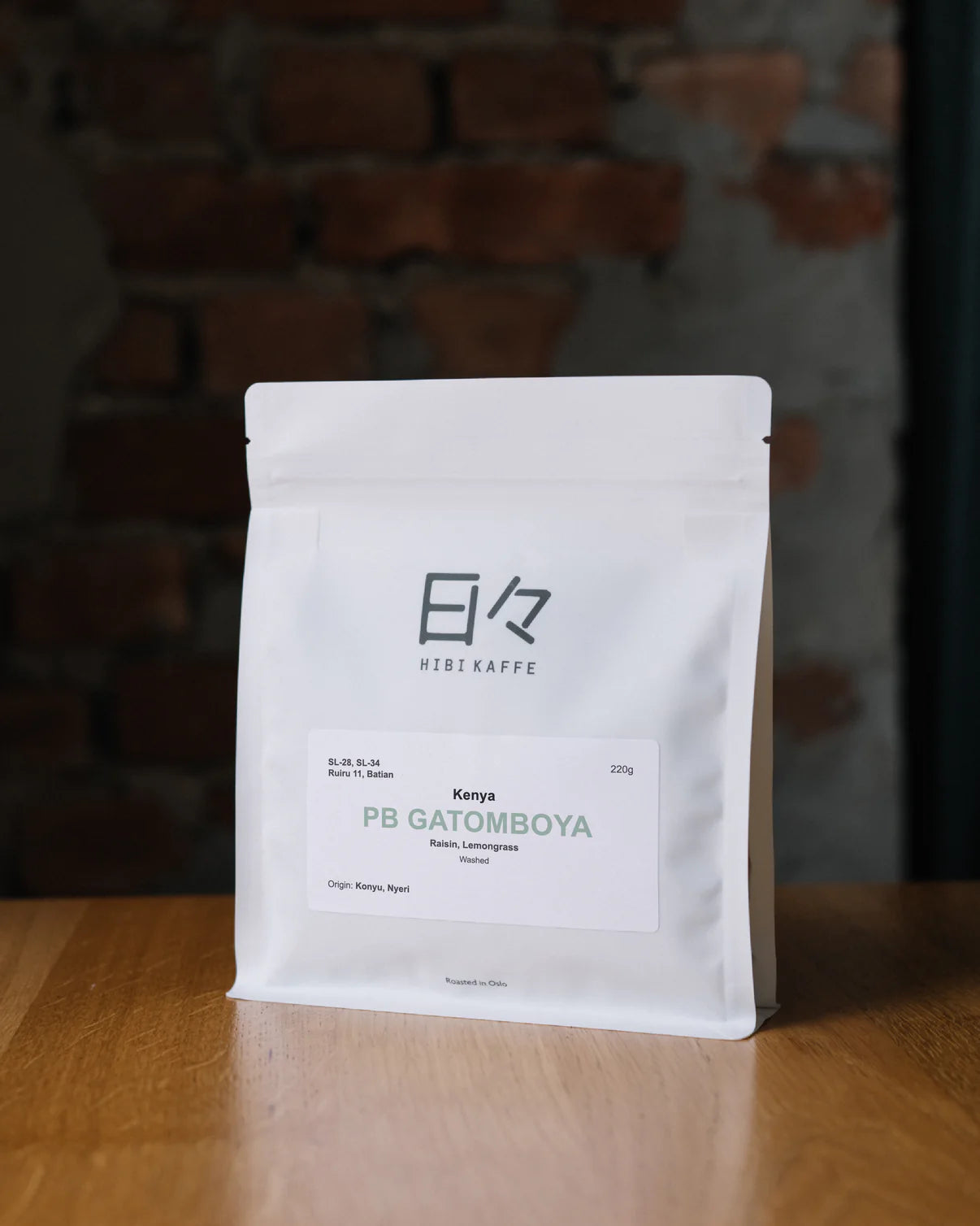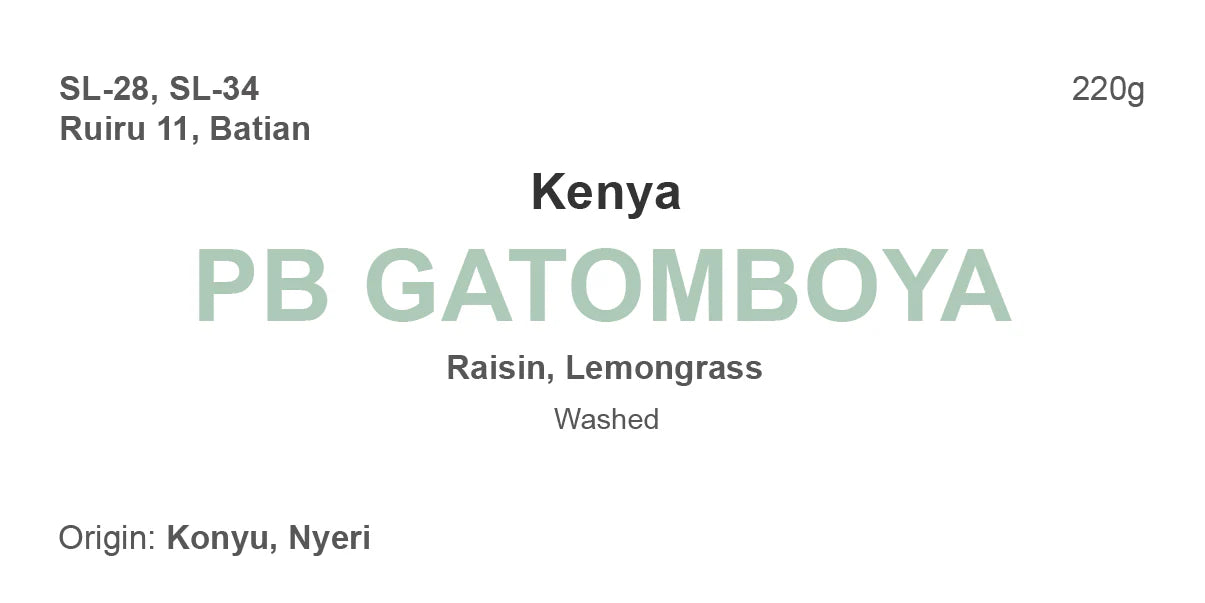pb gatomboya - kenya - washed
pb gatomboya - kenya - washed
couldn't load pickup availability
Ayae Maki Fredheim is originally from Japan. She moved to Norway with her husband in 2013. That is when she discovered her love for coffee and her passion for roasting started blossoming. Aya started as a barista at a café in Oslo in 2014, began roasting in 2018, and became the head roaster in 2019. She remained in that role until 2023 when her son was born. Motherhood has a certain way about empowering women to follow their dreams. Aya started her own roastery, and after months of planning, she officially launched Hibi Kaffe in November 2024.
Hibi means daily in Japanese—better coffee for your everyday moments. Basically. Aya says: "Starting this journey has been amazing, and I’m so excited to share it with others!" Equally amazing is the way that our paths crossed and that was a pure coincidence triggered by our common interest in sourdough baking, and Aya and Leif's hevet.no collection of proofing baskets.
This vibrant Kenyan coffee offers a lively, zesty acidity with notes of lemongrass, balanced by a gentle sweetness reminiscent of sun-dried raisins. Bright and elegant, it’s a cup that will delight anyone who enjoys complex flavors and a clean, refined finish.
about this coffee's origin: Nyeri - Gatomboya - Kenya
The Gatomboya factory is located in Konyu, Nyeri, within the Mathira division, at an elevation of 1770 metres above sea level. Established in 1987 under the Mathira FCS, it became part of Barichu FCS in 1996. The factory processes cherries from about 700 smallholders, each averaging 0.4 hectares.
The name "Gatomboya," a Kikuyu word meaning "swamp," refers to the area's swampy terrain, ideal for cultivating arrowroots. Farmers primarily grow SL 28 and SL 34 coffee varieties on rich volcanic soils, alongside other crops like tea, maize, and bananas. Shade trees such as Gravellea, Macadamia, and Eucalyptus are also planted.
harvest: cherries are handpicked during the main harvest season from October to January. The water source for processing these coffees is the Kirigu River, with water being recirculated and six soak pits used for wastewater management.
processing: the cherries are sun-dried on African raised beds.
varietal: SL-28, SL-34, Ruiru 11, Batian
crop year: 2025




